|
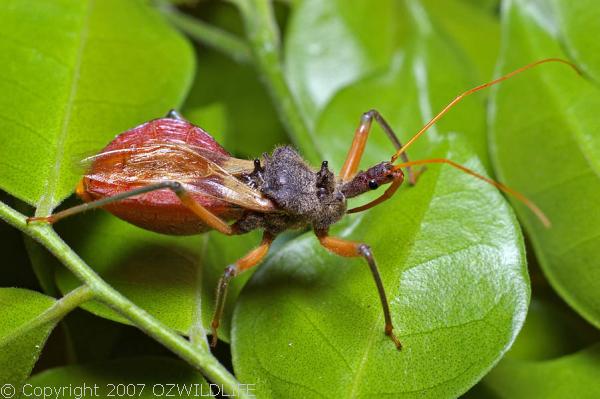
Adult Assassin Bug
Photograph copyright: ozwildlife - all rights reserved. Used with permission.
|
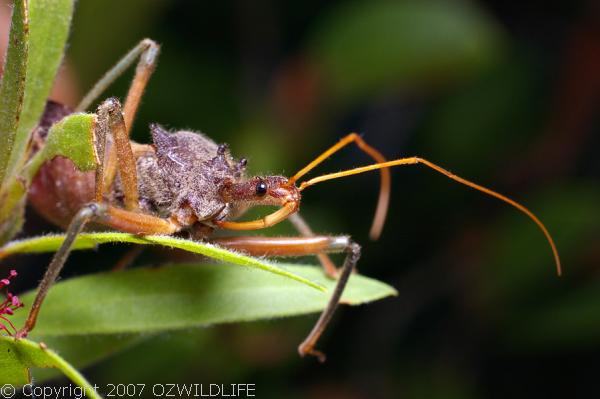
Adult Assassin Bug
Photograph copyright: ozwildlife - all rights reserved. Used with permission.
|
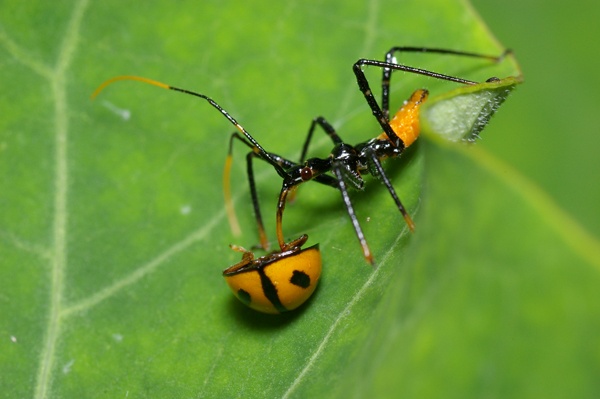
Assassin Bug nymph feeding on ladybird. This is an early stage nymph.
Photograph copyright: ozwildlife - all rights reserved. Used with permission.
|
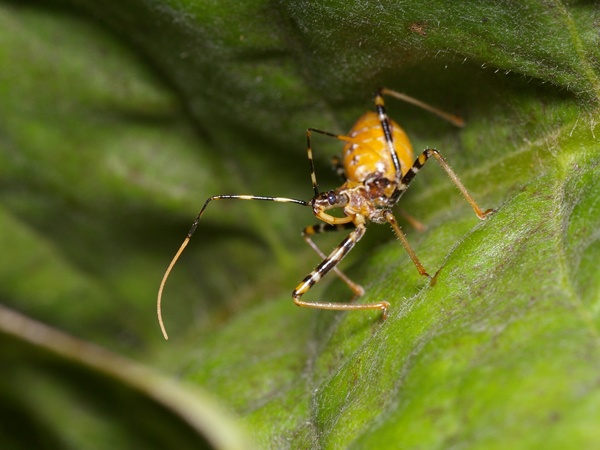
Assassin Bug nymph - later stage. This one was on a Gerbera pot plant outdoors.
Photograph copyright: ozwildlife - all rights reserved. Used with permission.
|
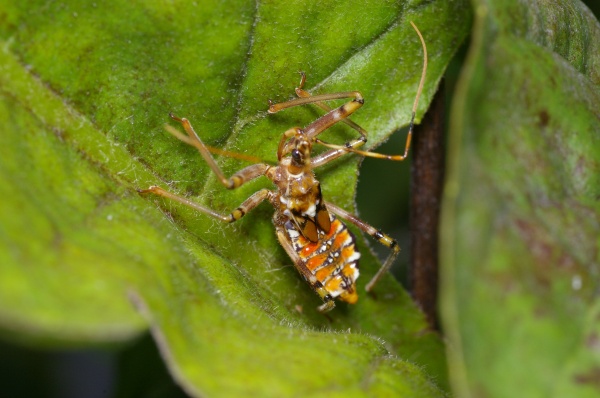
Assassin Bug nymph - now the wing buds are visible. I think this could be a later instar of the same bug in the previous photo - it was photographed on the same Gerbera pot plant a week later.
Photograph copyright: ozwildlife - all rights reserved. Used with permission.
|
|
|
ASSASSIN BUG FACTS |
Identification
The Assassin Bug is a medium to large sized bug with a large curved mouth part for piercing and sucking. It has long legs. Adult bugs are brown in colour with transparent wings. Nymphs are black with orange abdomens when they first emerge from the egg. They go through several instars (or moults) before becoming winged adults. (The term "instar" means the developmental stages of the larval or nymphal forms).
Size
23mm
Habitat
amongst foliage
Food
ambushes insects and impales with its spiky mouthpart (called a rostrum). It pumps enzyme into the prey to dissolve tissue and sucks out the liquid.
Breeding
Females lay clusters of long reddish brown eggs. The Nymphs go through five moults to become adults.
Notes
One evening I saw one of these Assassin bugs on the wall of our verandah where a number of geckos prowling for food. The geckos would approach within a centimetre of the Assassin bug but would not try to harm it. Once they realised what it was they seemed to ignore it.
Classification
| Class: | Insecta | | Order: | Hemiptera | | Family: | Reduviidae | | Genus: | Pristhesancus | | Species: | plagipennis | | Common Name: | Assassin Bug |
|
|

